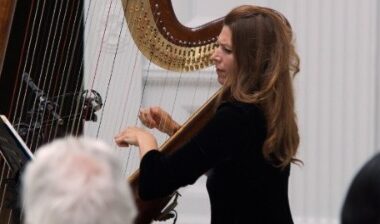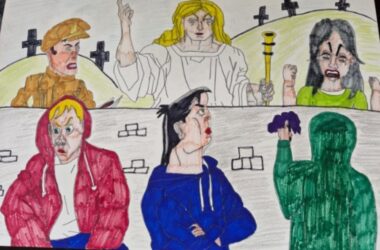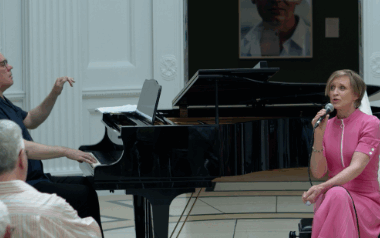Broadcasting every Thursday at 2.30pm, starts May 25th, 2023.
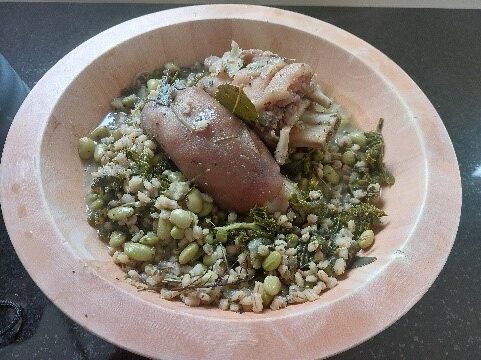
Welcome to our new three-part food history series Hungry Gap, Fat Friars, Food Poverty, produced by Berni Dwan. In this series we will explore food and drink production and consumption in Ireland and Britain over one thousand years starting at 1000 and ending in 2023 and learn how our ancestors coped during the good times and the bad times. The history of food is the history of your neighbourhood, of your country; it’s the history of the world. So, get yourself a snack, and join our food historians and community participants, on this one-thousand-year journey. Broadcasting every Thursday at 2.30pm, starts May 25th, 2023
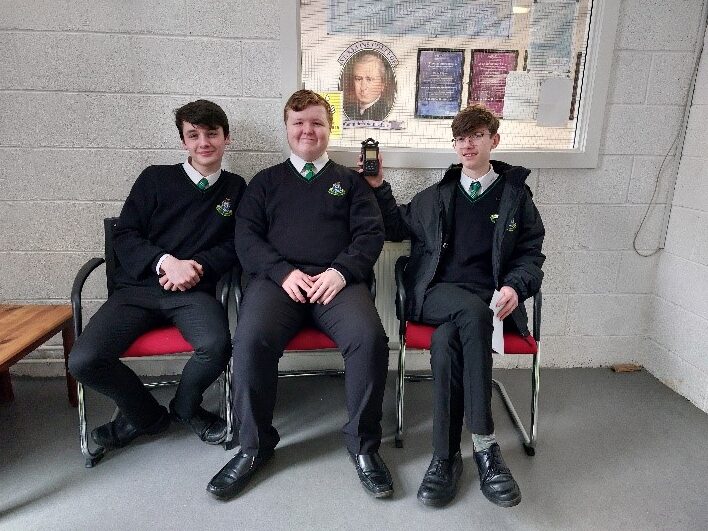
Episode 1
The year 1000 may seem like a long time ago, but it’s a mere blip on the timeline in the history of human procurement and consumption of food and drink. We are entering a pivotal time in Irish and British history, but people still need to eat, so how did the food situation play out across society up until 1500? Here to help us navigate the culinary landscape of these five hundred years are Regina Sexton and Margaret Hickey. Regina lectures in University College Cork, is author of A Little History of Irish Food, and presented an eight-part RTE television documentary of the same name. She has contributed to the Atlas of the Great Irish Famine and more recently, to the Coastal Atlas of Ireland, both published by Cork University Press.
Margaret Hickey is a prolific food writer, and former food and drink editor of Country Living magazine. Her most recent book, Ireland’s Green Larder: The Definitive History of Ireland’s Food and Drink was published in 2018.
We will also hear a report from the Keating family in Rathfarnham who have recreated a medieval pottage, a Vox pop from 5th year students in St. Kevin’s College in Ballygall, and an interview by horticulture students from Colaiste Dhulaigh in Kilbarrack. with Tom Keogh on Keogh’s Farm in North County Dublin, where potatoes are grown to make artisan crisps.
Episode 2
From 1500 and through the next five centuries, Ireland became more and more of a British colony before emerging, after many famines and rebellions, as a Free State and then a Republic. In Episode 2 we are joined by Dr Susan Flavin and Dr Elaine Mahon who will, in turn, deal with distinct aspects of food history at either end of this 500-year period – firstly, the food landscape of the mid-16th to the mid-17th centuries and more recently, Ireland’s approach to food diplomacy in the first half of the 20th century.
Dr Susan Flavin is Associate Professor of History at Trinity College Dublin, and Principal Investigator on the European Research Council funded FoodCult Project (foodcult.eu). She is the author of numerous publications on early modern Ireland, including Consumption and Culture in Sixteenth Century Ireland: Saffron, Stockings and Silk. She is currently writing a book on food and identity c 1550-1700.
Dr Elaine Elaine Mahon is a lecturer in gastronomy, culinary arts and food studies in TUDublin. Elaine is Assistant Director of the National Centre for Franco-Irish Studies, is on the organising committee of the Dublin Gastronomy Symposium, and a trustee of the Oxford Symposium on Food and Cookery where she coordinates the Young Chefs programme.
We will also hear a report from two first year students in Edmund Rice College in Blanchardstown – Alannah and Oisin White, who have recreated a potato lemon cheesecake from a 1750 cookbook, a Vox pop from 5th year students in St. Kevin’s College in Ballygall, and an interview with Rossa Cassidy at the beautifully atmospheric Elmhurst Cottage Farm in Glasnevin, where traditional methods are practiced.
Episode 3
In Episode 3 we are joined by Professor Bryce Evans, Dr Ian Miller and Emma Cornell-Stoffer who will concentrate on the 19th and 20th centuries.
Dr Ian Miller is a Senior Lecturer in Medical History at Ulster University, and he will focus on the impact of diet on health wellbeing. Ian is the author of six medical history books including Reforming Food in Post-Famine Ireland – Medicine Science and Improvement 1845-1922, A History of the Modern Stomach, and A History of Force Feeding – Hunger Strikes, Prisons and Medical Ethics 1909-1974.
Emma Cornell Stoffer is a social and food historian based in Hampshire with a particular expertise in life on the home front during World War I and World War II. She appears regularly on British television and radio, her broadcast credits include BBC, ITV, Channel 4, Discovery UK and more recently the Which? Magazine podcast. Emma also organises heritage events including immersive food history experiences.
We will also hear a report from Niamh O’Dowd in Donnycarney who experimented with cooking in a haybox, a Vox pop from 5th year students in St. Kevin’s College in Ballygall, and an interview with horticulture students and amateur growers Mark McCann and Michael Corcoran in the polytunnel at Colaiste Dhulaigh in Kilbarrack.
Credits
Series devised and produced by Berni Dwan with additional production support from Declan McGlade. Voxpops by Karl Mooney, Scott Curran and Paul Smith in St Kevin’s College. The intro and outro music for the three episodes is from Tell Everybody, produced by artists from across Africa in 2015 to support UN efforts to create a sustainable future for all people and the planet. The song addresses the Sustainable Development Goals aimed at eradicating extreme poverty, fighting inequality and tackling climate change. Find out more about Tell Everybody and hear the full song on https://www.huffpost.com/entry/africa-song-tell-everybody-global-goals_n_55f85a1ae4b00e2cd5e822e4
Made with the support of the Broadcasting Authority of Ireland with the Television License Fee.

